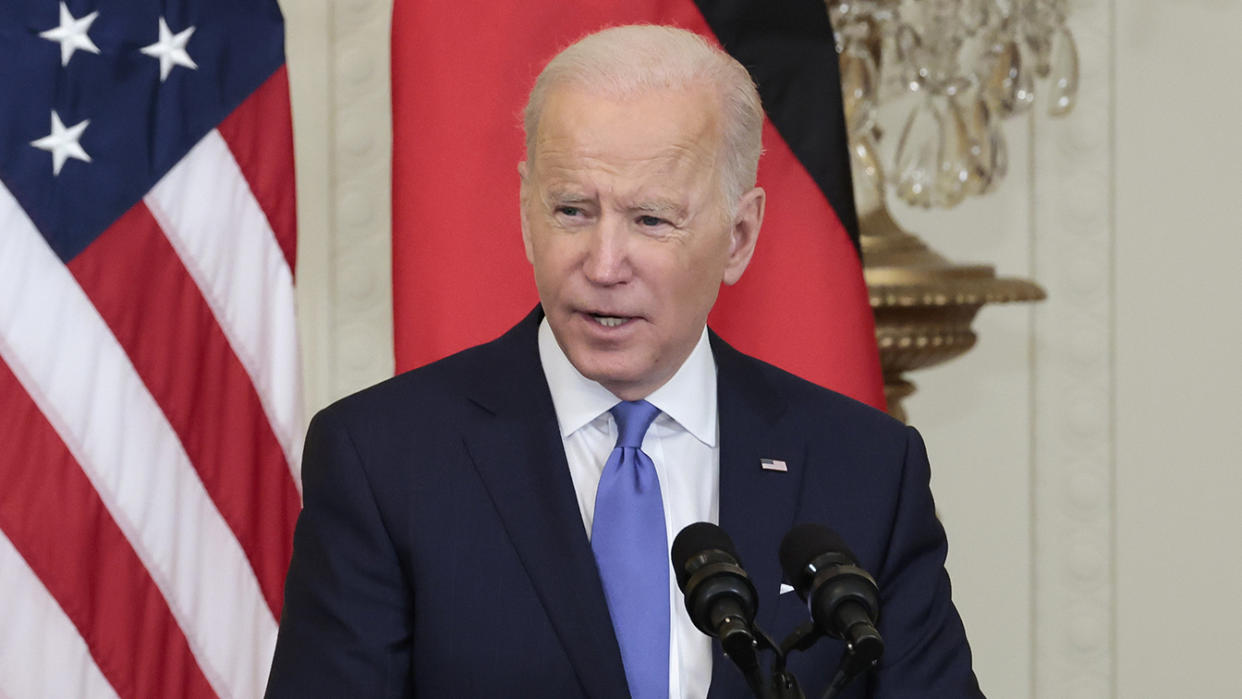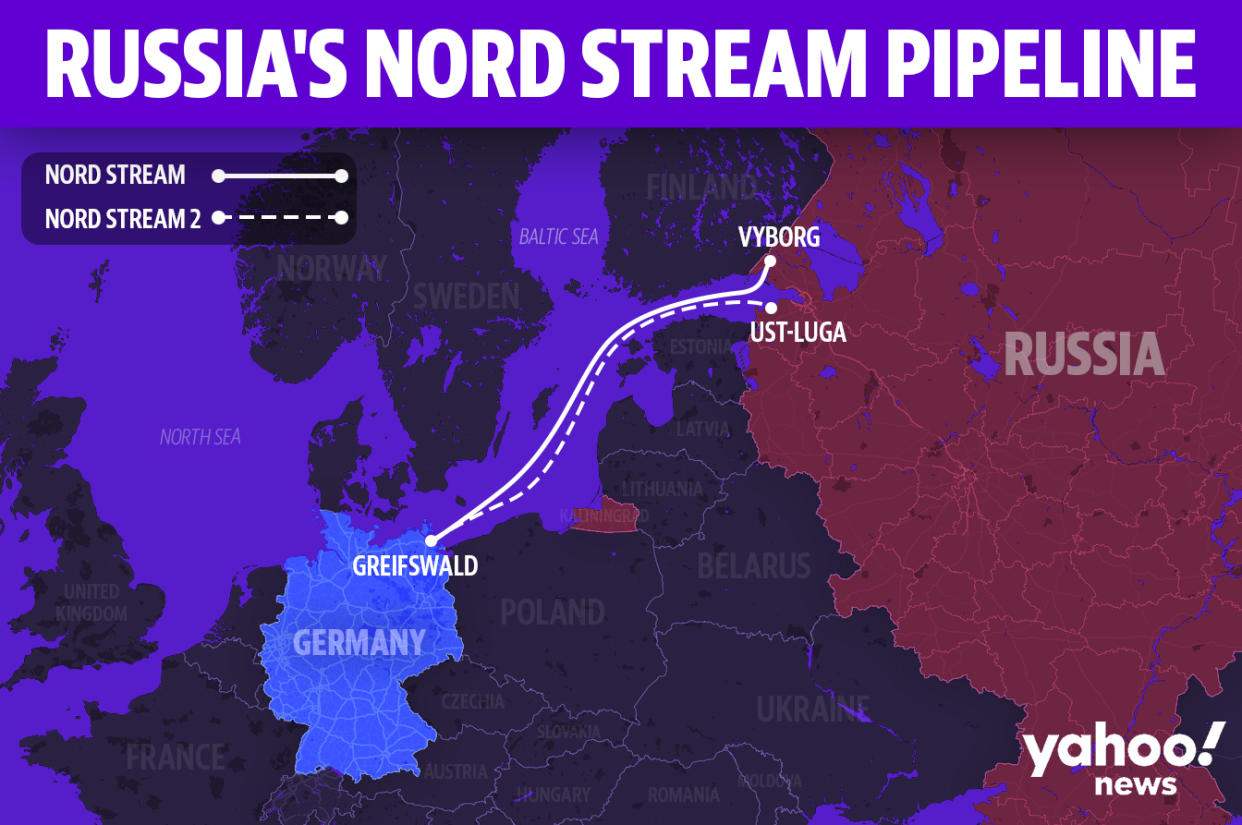Biden, Scholz vow unity on Ukraine, but issues linger
WASHINGTON — Even as President Biden and German Chancellor Olaf Scholz met at the White House on Monday to reaffirm their joint efforts to dissuade Russia from launching an invasion of Ukraine, questions remained about whether the two leaders are prepared to respond to a military incursion by halting the completion of the Nord Stream 2 natural gas pipeline.
“If Russia invades — that means tanks or troops crossing the border of Ukraine — there will be no longer a Nord Stream 2. We will bring an end to it,” Biden said during a press conference with Scholz following their meeting.
Scholz, by contrast, was much more muted about the pipeline.
“As I already said, we are acting together. We are absolutely united, we will not be taking different steps, will do the same steps and they will be very, very hard to Russia,” Scholz told reporters.

Pressed on how he would go about halting the construction of the pipeline despite its being located on German soil, Biden did not go into specifics but voiced confidence about his options. “I promise you we’ll be able to do it,” he said. That promise echoed one he made months earlier, about Kabul not falling under Taliban control after U.S. forces withdrew from Afghanistan. The speed with which that promise unraveled in late August led to questions about Biden’s approach to foreign policy.
Ukraine is another test for a president who depicted himself during the 2020 campaign as an elder statesman, one whose dealings with world leaders would be far more measured than those of his White House predecessor.
Despite massing roughly 100,000 troops along Ukraine’s borders with Russia and Belarus, Russian President Vladimir Putin has said he doesn’t want a military conflict, but he has made little effort to hide his irritation at the expansion of NATO into Eastern Europe.

“Russian concerns were basically ignored,” Putin complained at a press conference last week. French President Emmanuel Macron met with Putin on Monday in Moscow in an effort to broker a peaceful solution to the conflict.
Biden, meanwhile, has sought to rekindle unity among NATO members following years of fraying relations during Donald Trump’s presidency. Ukraine is not part of the organization and is therefore not subject to its collective defense clause, known as Article 5. Still, any Russian aggression would be seen as a threat to the broader stability of Eastern Europe at a time when nationalism, xenophobia and the coronavirus pandemic are testing a decades-long order.
Biden said on Monday that it would be “a gigantic mistake” for Putin to launch a full-scale invasion of Ukraine. “The impact on Europe and the rest of the world would be devastating and he would pay a heavy price,” the president said, promising “swift and severe” sanctions on Russia were such an invasion to take place.
There would be consequences for Europe too. Russia accounts for about one-third of all natural gas and one-fourth of all crude oil consumed by the European Union, making it “the bloc’s largest single energy source,” according to the Council on Foreign Relations.

Running 800 miles beneath the Baltic Sea and linking Russia to Germany, the Nord Stream 2 pipeline would greatly increase Germany’s supply of natural gas. Upon its completion, it is expected to have an annual capacity of 55 billion cubic meters of natural gas. But because the pipeline would not pass through Ukraine, which does not have access to the Baltic Sea, Kyiv would not collect transit fees from the project.
U.S. energy prices could suffer from a Ukrainian invasion too, but not as directly as those in Western Europe. That has made Scholz, in particular, somewhat reticent in confronting the Kremlin directly. Even as he and Biden vowed a unified approach on Monday, his evasion of the Nord Stream 2 conundrum made clear Berlin’s desire to tread carefully.
“We will be united, we will act together,” Scholz said at one point. He said the German economy would also “switch to hydrogen” in the near future, lessening the dependence on Russian energy sources and burning fossil fuels more generally. But such a shift is unlikely to come soon enough to resolve the crisis on the Russia-Ukraine border.
Still, Biden vowed that the ties between Germany and the United States remain strong, disputing the notion that disagreements over how to handle Russia had damaged the relationship. “No need to win back trust,” the president said. Scholz “has the complete trust of the United States.”

